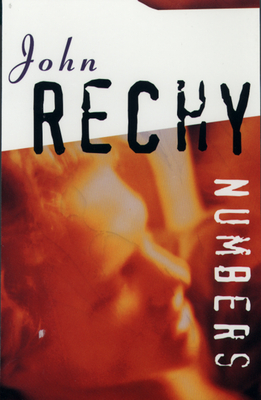

Released by Grove Press, the publisher of Henry Miller's "Tropic of Cancer" and other scandalous books, it was denounced and embraced, its novice author (who shied away from the limelight at the time) the target of innuendo. When his first novel, "City of Night," about the sexual adventures of a hustler from Times Square to the French Quarter, came out in 1963, it became an overnight sensation.

Toward the end, a re-encounter shows the extent to which these parallel lives, hers and his, took divergent paths.īut I suspect the reason Latino literary historians, and Chicano critics in particular, ignore, maybe even dismiss, Rechy's work rests elsewhere.

As the narrative evolves, it becomes clear that the author measures his own achievements against the kept woman's odyssey. She leaves El Paso to become a free spirit in Texas and California, for which Rechy envies her deeply. Bert Schwartz from San Francisco) who likewise covers up her Mexicanness, and with whom he shared a revelatory childhood experience. He uses as his leitmotif a kept woman ( Alicia Gonzalez from El Paso, alias Isabel Franklin from New Orleans, alias Mrs. His aunts, portrayed in soap-operatic terms, are gossipy and mean spirited, yet suspiciously conservative. In his memoir, Rechy offers stringent comments on Mexican hypocrisy. Then, someone would often protest, saying something like, 'Oh, you must be Spanish, you're too fair to be a Mexican, don't say you're a Mexican.' " As a kid, before I learned English, I would necessarily respond in Spanish to whatever might be asked, in a store, at the barber college we went to for the cheapest cuts, at the library, on the bus. "I had always been assumed by strangers to be Anglo. In a country where la hispanidad is seen - today probably more than ever - as shameful, for Rechy to have hidden his south-of-the-border self (he's of lighter skin, and, thus, "was considered a guerro, a Mexican who didn't look Mexican by entrenched standards") was a ticket into American society. Of course, such ambivalence isn't exceptional. But though he describes his immediate family, poor and humble as it was, in mostly affectionate terms, and though he vividly re-creates life in El Paso, Texas, where he was born in 1934, a mix of Mexican and Scottish ancestry, Rechy's connection to his Mexicanness is nothing if not convoluted. In his memoir, "About My Life and the Kept Woman," he comes across as a ferocious fighter for a libertine existence. Perhaps this is because his relationship with his Mexican identity is complicated.

John Rechy has never been given his due as a foundational figure in the Latino literary tradition.


 0 kommentar(er)
0 kommentar(er)
